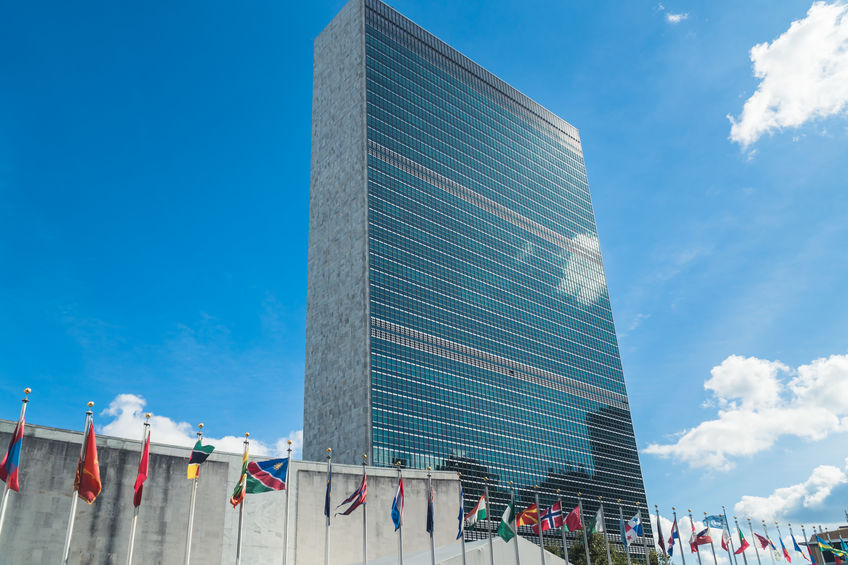
Red rover, red rover, send more climate finance money over!
That was more or less the message from the webinar hosted by the United Nation’s (UN) Convention on Biological Diversity this week. The official name of the session was “Aligning financial flows with the Post-2020 Global Biodiversity Framework,” a fancy way of saying “squeezing more money from the private sector for the UN.”
CFACT attended the virtual forum as an officially recognized Non-Governmental Organization (NGO) observer to report on what was discussed.
While there is money available for strictly climate change initiatives and programs within the UN, the same dollar amounts aren’t available for conservation and biological diversity initiatives – at least not yet.
That’s why in the first minutes of the webinar the executive director of the UN Environment Program, Inger Andersen, gave a speech chastising the private sector for supposedly not doing their part in trying to conserve lands and waters.
“We’re here for one reason: we’re not putting enough money into conservation,” Andersen said. “Now, some estimates say we have this funding gap of $600 to $800 billion per year for biodiversity by 2030.”
Andersen continued, “We understand that today when we look at where are the investments [in conservation] are coming from well it’s about 86% of nature-based solutions that are actually coming from public resources. So that’s good, good on public, thank you, but we need to think broader, right, it’s too low, it’s too little, and it’s not gonna do the lift that we understand we need. So, the private sector is being invited in…”
Andersen went on to claim that involving private corporations and financial actors in the biodiversity framework will somehow generate $10 trillion in business revenue and create 400 million jobs by 2030 “if we get it right.” No data or sources were provided to support these claims.
In other news, the UN also has some magic beans to sell you that are sure to grow into a giant beanstalk! Or maybe it was a bridge in Brooklyn they were selling?
All this talk on financial arm twisting by the UN comes from language in the Paris Climate Agreement in section “2.1 c” that says the agreement aims to strengthen the global response to the supposed threat of climate change by: “Making finance flows consistent with a pathway towards low greenhouse gas emissions and climate-resilient development.”
So why is it being discussed in the context of biodiversity?
A panelist named Rachel Kyte let the cat slip out of the bag during the UN webinar, saying: “The language of 2.1c [in the Paris Agreement] is, is, vague. Um, which is not a bad thing, right? We have this constructive ambiguity.”
The saying goes: “The devil is in the details.” In this case, the devil is in the lack of details. As panelist Rachel Kyte explained, the UN is gleefully using the ambiguous language in the financial flows section of the Paris Agreement to mean whatever they want it to mean.
In the UN’s eyes, everything impacts climate change. So then, under section 2.1c of the Paris Agreement, the UN has the supposed authority to try to influence and direct financial flows to any issue they choose.
Today, it is biodiversity.
Who knows what it will be tomorrow?
Kyte went on to elaborate on how the UN’s 26th Conference of the Parties (COP26) climate summit in Glasgow, Scotland, this past November began to change the game on financial matters.
While currently financial investment in “green” initiatives is voluntary, Kyte hinted those issues discussed at the Glasgow COP26 meeting shows that “mandatory” investments in “green” initiatives could be coming for the private sector.
“We will need regulation,” Kyte said in regard to demanding how private investments are managed when it comes to environmental issues.
In the United States, the genesis of this can already be seen. The Biden Administration’s Department of Labor (DOL) has begun to propose new rules on financial investments and shareholder rights. The language proposed by DOL is vague, but according to analyst Rupert Darwall, it has the potential to open up fiduciaries and financial planners to penalties and fines from the government if they are not investing in enough “green” initiatives. Another word for these types of investments is “ESG investments,” or “Environment, Social, and Governance” investments.
Another important word to understand in this process is the first word of the title of the webinar. That word is “aligning.”
Simon Zadek, moderator of one the UN’s panels on the webinar, explained that “aligning” financial flows is different than strictly demanding money to be given from government and private institutions to a UN bank account.
Aligning means that at a macro level, all sectors in governance and finance are working together with a similar goal without necessarily housing it under one UN program’s roof.
While this may sound less scary than the UN demanding a check for its own specific use, the consequences have the potential to be very dangerous to liberty and free market enterprise. This macro “alignment” gives the UN justification to stick its nose into all aspects of financial and economic life.
* This article was originally published here
HELP STOP THE SPREAD OF FAKE NEWS!
SHARE our articles and like our Facebook page and follow us on Twitter!





0 Comments